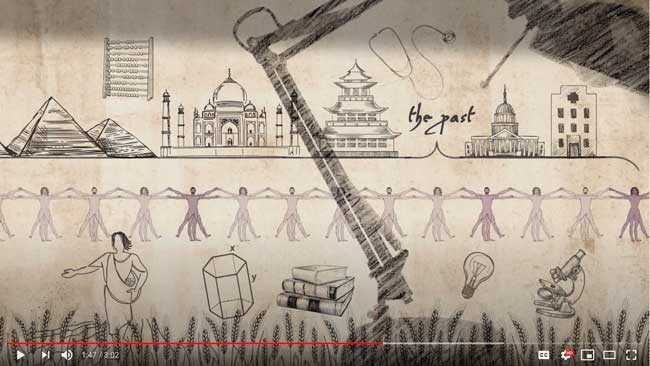The Indira Gandhi Rashtriya Manav Sangrahalaya is spearheading an interactive Museum Movement in India, to celebrate the ‘simultaneous validity’ of various valuable cultural patterns evolved over thousands of years. The Organization is working for national integration, and promotes research and training and inter-institutional networking for Salvage and revitalization of vanishing but valuable cultural traditions and highlights the unity and diversity; and organizes exhibitions to present an integrated story of biological evolutions and variations. The IGRMS, through its exhibitions and salvage activities, demonstrates the aesthetic qualities of India’s traditional life styles; local knowledge and mores cherished for thousands of years, and caution the people against unprecedented destruction of ecology, environment, local values, customs etc. There is a paradigm shift in museum education process and IGRMS envisages a definite role for itself in this process.
Source: IGRMS: World Environment day- June, 2011- Bastar band : Performing Art presentation
Address : https://youtu.be/1kjPS3rNj-M
Date Visited: 5 March 2024
[Bold typeface added above for emphasis]
“We must consider the environmental dimension of justice now. The challenge of climate change is so enormous that it forces us to redefine ‘rights’.” – Droupadi Murmu | Speeches by the President of India | United Nations on climate change >>
Up-to-date reports by Indian journalists and commentators
To search Indian periodicals, magazines, web portals and other sources safely, click here. To find an Indian PhD thesis on a particular tribal community, region and related issues, click here >>
Search tips
Combine the name of any particular state, language or region with that of any tribal (Adivasi) community.
Add keywords of special interest (music, poetry, dance just as health, sacred grove and biodiversity); learn about the rights of Scheduled Tribes such as the “Forest Rights Act” (FRA); and the United Nations “Declaration on the Rights of Indigenous Peoples”, “Universal Declaration of Human Rights”, “women’s rights”, or “children’s right to education”.
Ask a question that includes “tribal” or “Adivasi”, for instance: “Adivasi way of life better?” (or “tribal way of life worse?”)
Specify any particular issue or news item (biodiversity, bonded labour and human trafficking, climate change, ecology, economic development, ethnobotany, ethnomedicine, global warming, hunter-gatherers in a particular region or state, prevention of rural poverty, water access).
For official figures include “scheduled tribe ST” along with a union state or region: e.g. “Chhattisgarh ST community”, “Himalayan tribe”, “Scheduled tribe Tamil Nadu census”, “ST Kerala census”, “Particularly Vulnerable Tribal Group Jharkhand”, “PVTG Rajasthan”, “Adivasi ST Kerala”, “Adibasi ST West Bengal” etc.
In case the Google Custom Search window is not displayed here try the following: (1) toggle between “Reader” and regular viewing; (2) in your browser’s Security settings select “Enable JavaScript” | More tips >>
Note: hyperlinks and quotes are meant for fact-checking and information purposes only | Disclaimer >>

Watch “The Good Ancestor – The Legacies We Leave” (3 min.): An animation that explores the legacies we might leave for future generations >>
Links to some of the most important organisations, thinkers and doers that are leading the way and that have inspired the book The Good Ancestor by Roman Krznaric >>
Explore India’s tribal cultural heritage with the help of another interactive map >>